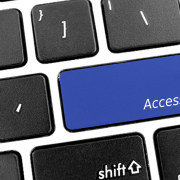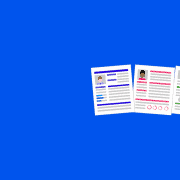|
Getting your Trinity Audio player ready...
|
“Access to reliable information saves lives. Misinformation and rumours can cost them.”
This is the message from Unesco director-general Audrey Azoulay today, on the International Day for Universal Access to Information, proclaimed at the Unesco general conference in 2015 and celebrated annually on 28 September.
This simple lesson is one we have learnt to our detriment in recent years, she adds. “Whether fighting a global pandemic or supporting public debate, we need free, reliable and independent information as the foundation upon which democratic societies are built.”
This year’s theme is The Right to Know – Building Back Better with Access to Information, emphasising that the public’s need for accurate and reliable information has never been greater than in the age of Covid-19, as countries battle secrecy and corruption and toil to rebuild communities and institutions.
Access to information (ATI) underpins democracy and good governance, and is also an important factor in the just and fruitful enforcement of human rights. The effectiveness of any ATI programme, however, depends not only on providing residents with the ability to make ATI requests, but also on government’s willingness to be transparent in granting such requests.
In the past this has not always been the case.
“[Former president Nelson] Mandela understood that it is a lack of information and a lack of knowledge that allows systems such as apartheid to thrive,” says Laura Neuman, senior program associate at the Atlanta-based Carter Center. “With information, citizens can better secure their democratic rights.”
This means that ATI empowers residents to participate in setting priorities and making decisions, and to hold their government accountable for its actions. “Information belongs to the people; governments simply hold information in their name,” Neuman says.
Furthermore, allowing people to request and receive public documents is a critical tool in the fight against corruption.
Access to information not always a given
“Our commitment to freely accessible information will only be effective if it is truly universal,” says Azoulay. “This is why we urge all countries to adopt legislation in this field, and to strengthen the implementation of such guarantees where these already exist. Governments must ensure safe and transparent data collection, strengthen record keeping and enable accurate analysis. And they must align these efforts with international privacy standards.”
In South Africa ATI is governed by the Promotion of Access to Information Act (PAIA), whose purpose is to ensure that every person can exercise their constitutional right of access to any information that they need for the exercise or protection of any right, whether that information is held by the state or another person.
For Corruption Watch too, this is an important right, because ATI requests made under PAIA are crucial to our work, especially in terms of investigations, and more especially when we do not have much to work with in the first place.
“These applications are very important for our investigations because we receive complaints that have not much supporting documents,” says CW’s senior forensic investigator Zanele Mwale. “To start working on a complaint, you need supporting documents to substantiate the argument. When you are alleging corruption with no documents to support your argument, it is like you are talking about something that you don’t know or are not sure about.”
CW relies significantly on the co-operation of government departments and private sector entities to furnish the information it requires to successfully perform its investigative functions. However, this does not always go smoothly and often we are left frustrated by the actions of recalcitrant departments and officials from all sectors.
“In our case the failure ratio is around 60/40, we get declined in most of the cases and we also receive some of our requests quickly, but 40% success is really not good,” Mwale says. “We’ve been declined access to information many times and for different reasons.”
The reasons, she adds, include;
- The information officer doesn’t know the details of the information we are looking for.
- The department refuses to provide the information as it is sensitive.
- The information requested includes third party information and the third party (person/private company) refuses the department permission to provide the information.
- The new POPIA policy.
- Lastly, the department doesn’t want to make the information available because their corrupt activities will be exposed.
Often, refusals to provide information derail the progress of an investigation, and it has to be shelved.
“It is very discouraging because it affects the progress of the investigation,” says Mwale. “Some of the investigations we have to file because we don’t have documents as evidence to pursue the investigation.”
Collectively fighting for transparency and accountability
CW’s work with the Access to Information Network (formerly the PAIA Civil Society Network) has upheld the principle of the right to know. The network brings together organisations and individuals working to achieve a culture of openness and accountability through effective PAIA implementation and use.
Member organisations have committed to improving the PAIA environment, raising awareness about the right amongst citizens, and working with bodies subject to the Act to improve understanding.
We are also involved, in partnership with Transparency International, in a project called Open Contracting for Health (OC4H), which aims to advocate for greater transparency in health procurement processes.
The project arose from a shared frustration with other civil society organisations – efforts to monitor the implementation of tenders is undermined by the lack of access to information, while requests made under PAIA are routinely met with the lawful ground of refusal that the information is commercially and legally sensitive.
We therefore undertook legal research to determine, among others, exactly which information has to be published, ways to access it, and what is actually considered to be legally and commercially sensitive. This data would enable us to make recommendations on how the publication of such information can be improved.
We published our OC4H report and policy document on this topic earlier in 2021.








